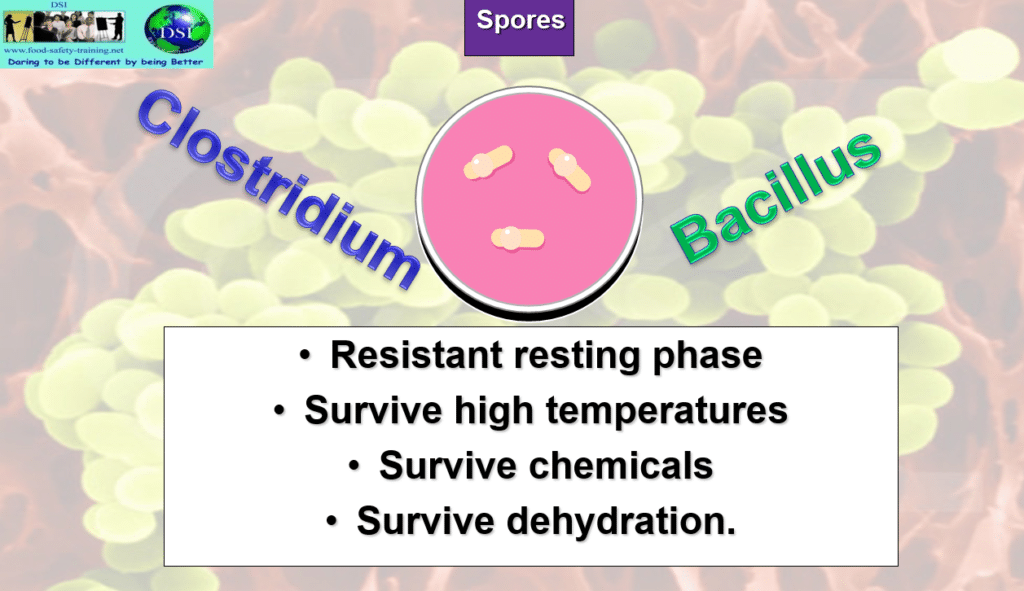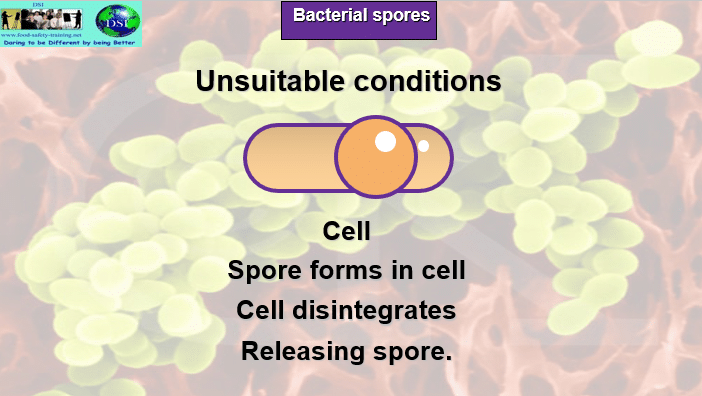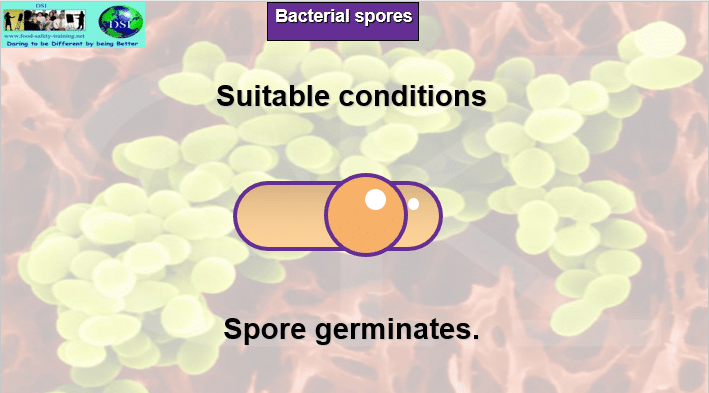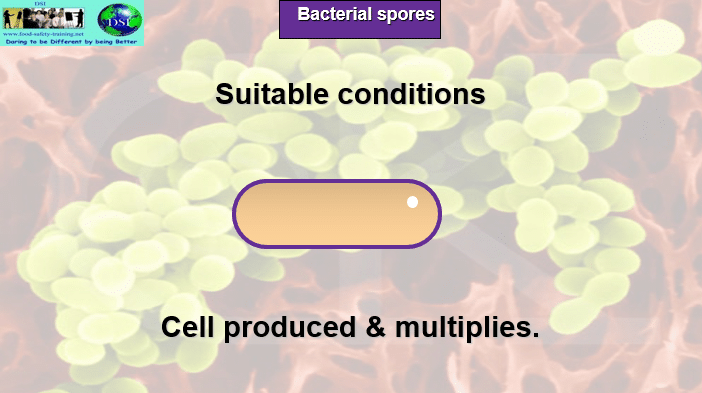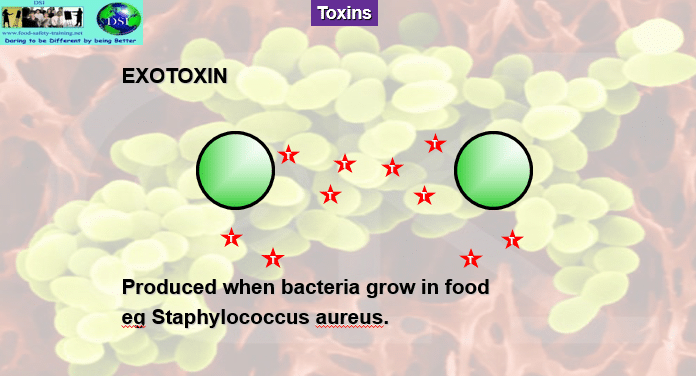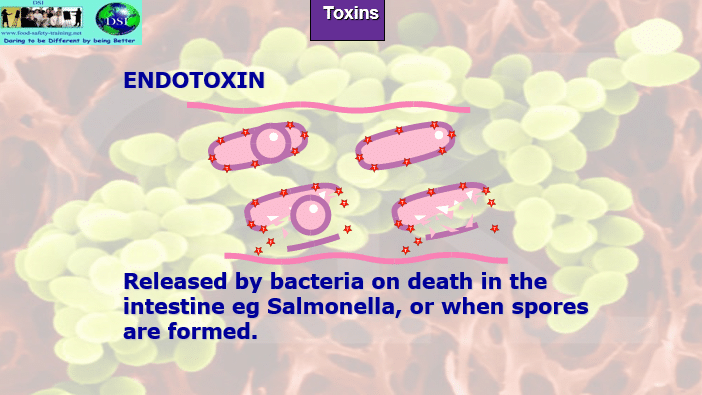Spores
Spore formation:
Some bacteria (Clostridium and Bacillus) form spores when conditions are unfavourable i.e.
· High temperature (not when increase is quick)
· Disinfectants
· Dehydration
· They are modified bacteria with a protective layer or “shell”
· Can survive for many years
· Do not require food or water to survive
· Some can survive boiling for up to 5 hours
· Canning 121°C core temperature for 3 minutes
· When conditions become favourable they germinate
· Toxins can be released on formation and germination
· If favourable conditions persist multiplication of vegetative bacteria begins
Toxins
Toxin production:
Toxins are poisons
Toxins are chemicals produced by certain bacteria as waste
Only a few types of bacteria produce waste poisonous to humans. These are known as pathogens.
Exotoxins
Usually produced in food during multiplication, many are heat resistant e.g.
Staphylococcus aureus
Bacillus cereus
Even if cooking destroys bacteria, exotoxins may remain
They result in a short incubation/onset period with vomiting
Endotoxins
Usually produced in the intestines of person consuming
Toxin forms part of bacterial cell wall
Released on death of bacteria or when spores are formed
Usually longer onset period
Diarrhoea normally one of main symptoms
e.g. Salmonella
Neurotoxins
Toxins that affect the nervous system
e.g. Clostridium botulinum
Examples of symptoms:
• Blurred and double vision
• Nerve paralysis
• Collapse
Enterotoxins
Exotoxins that affect the gastrointestinal tract

